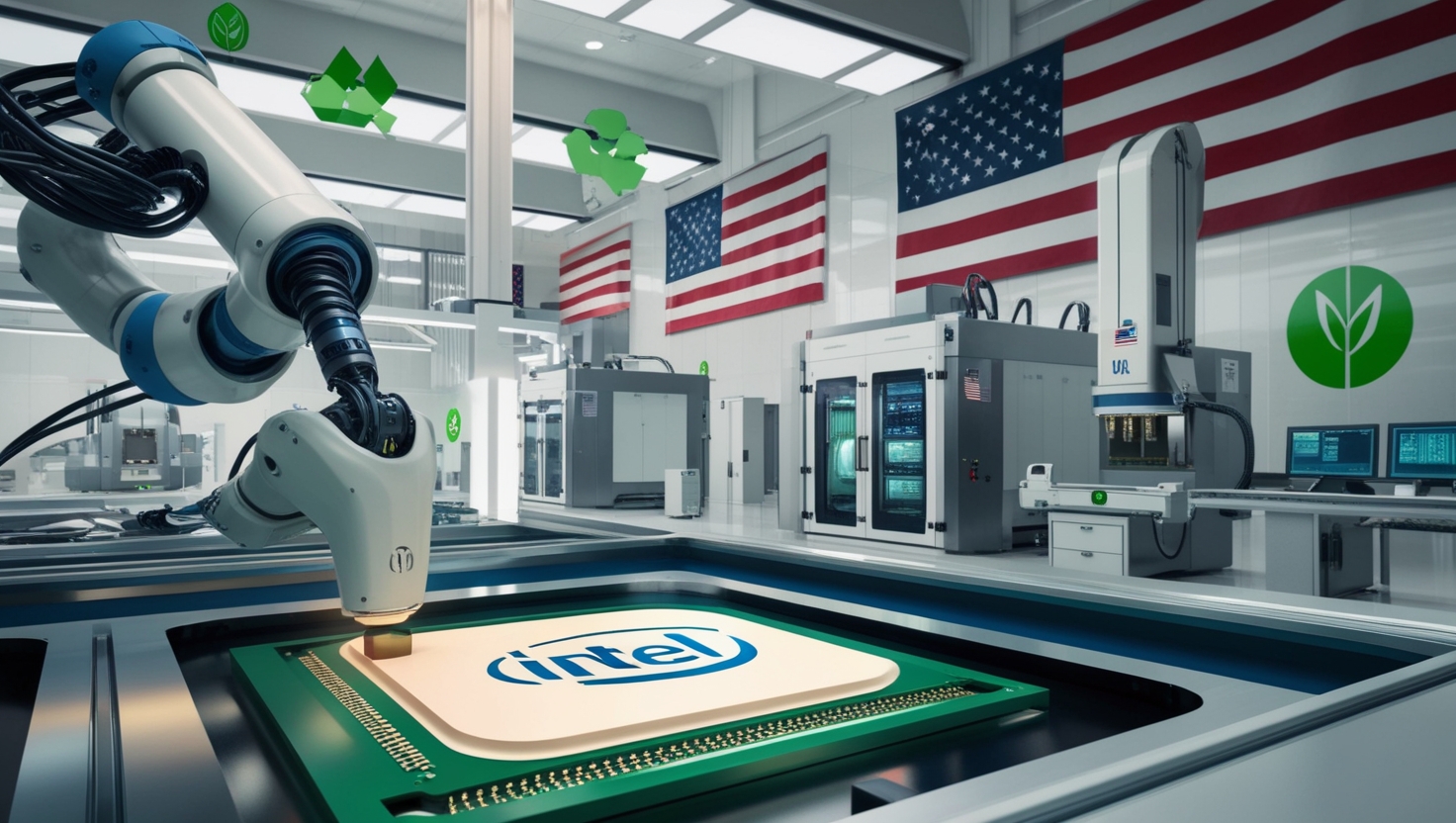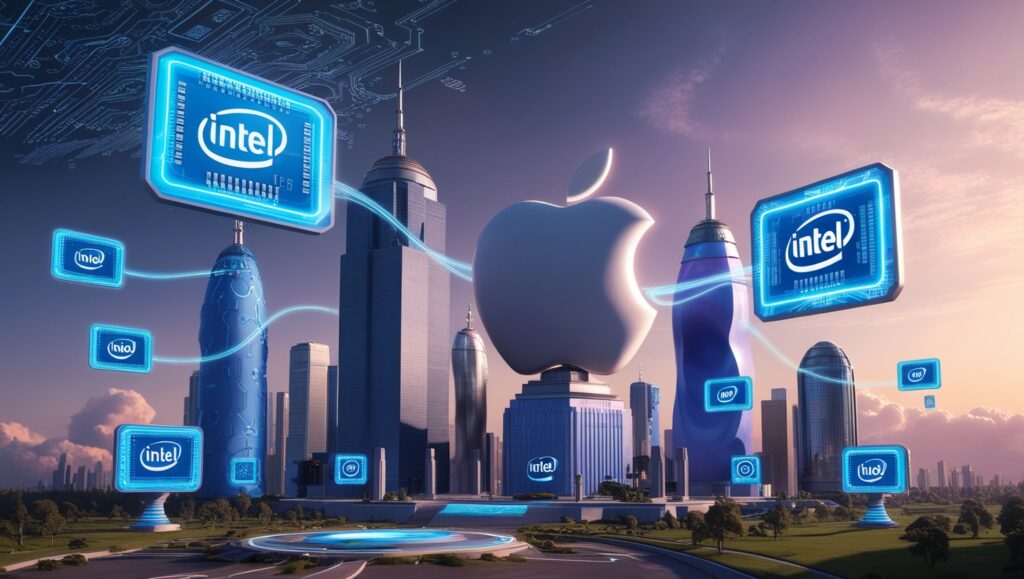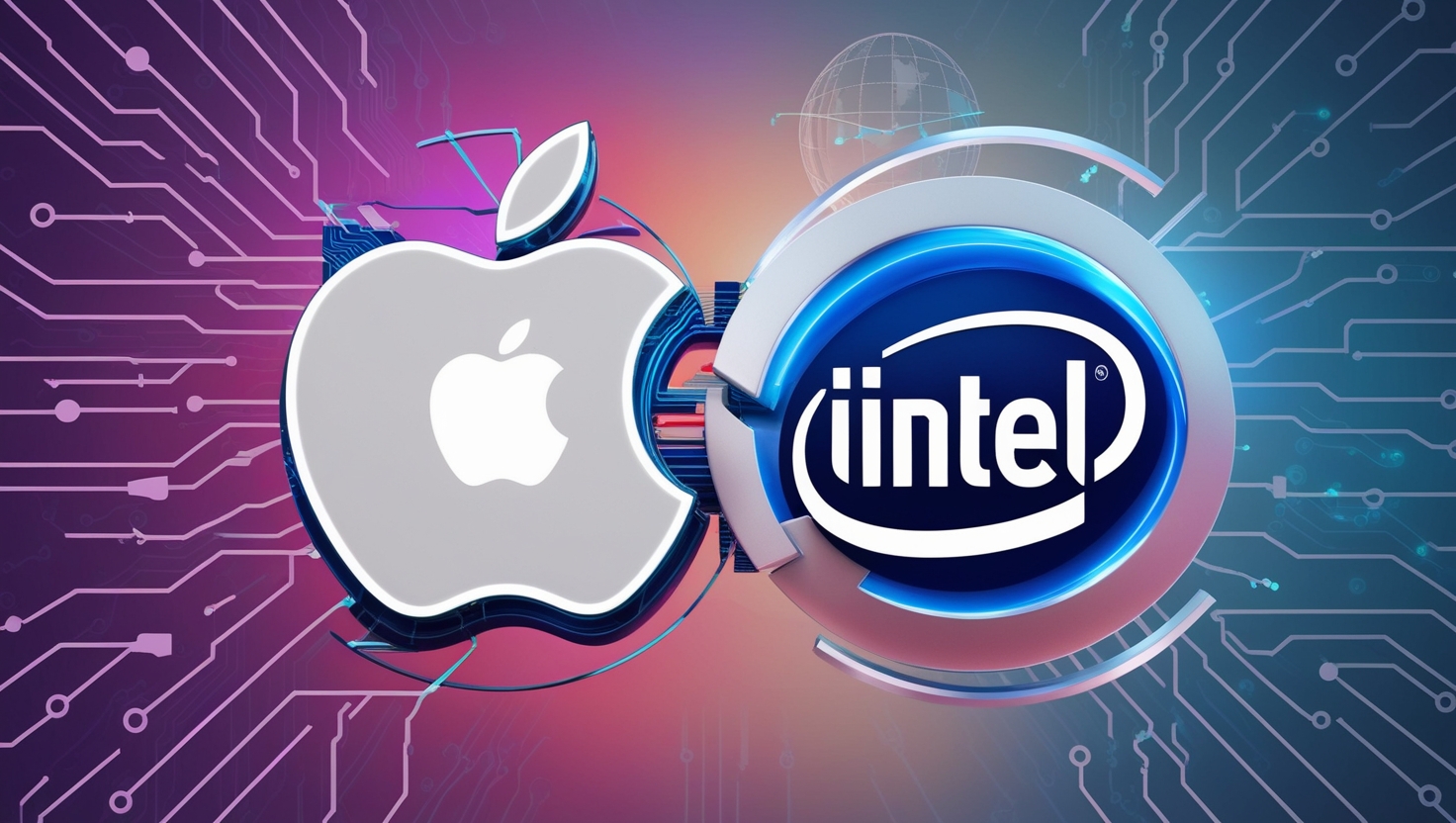Table of Contents
Introduction
Rumors continue to make waves in the world of technology about the possible purchase of Intel by Apple. It has been for so many years, and yet speculation only leaves people thinking over the issue. The transition to Apple Silicon that culminated in 2020 effectively marked the end of relying on Intel processors in the company’s Mac line. But buying out Intel still seems quite appealing to Apple for various strategic reasons. In what follows, we are exploring the motives, hurdle, and what implications this move will hold in store for the technology scene.
Background: How Dynamics Between Apple and Intel Keep Evolving
A connection spanned over a decade through the two companies, starting off from 2006 and during which Intel processors continued to power Mac computers when Apple started transitioning to its own ARM-based Apple Silicon chips. This gave Apple gain optimization of performance efficiency without it being completely at its mercy to control its supply chain, free from production cycle by Intel.
Intel, on its part, has faced stiff competition from the likes of AMD and NVIDIA which have succeeded in major innovations in the field of the CPU and GPUs. Intel’s investment in making itself a foundry and investing more in U.S.-based semiconductor manufacturing could create the perfect acquisition opportunity considering the need of Apple for secure and stable production lines to make its chips.
Why Apple May Need to Acquire Intel
Acquiring Intel could mean that Apple gets many strategic benefits, such as streamlining its supply chain up to strengthening its semiconductor manufacturing positions. Here are a few of the core reasons why Apple might buy Intel:
U.S.-Based Manufacturing: Intel’s domestic facilities may offer Apple the chance to manufacture chips in the U.S., thereby reducing its reliance on Asian suppliers. As international trade continues to be affected by global tensions and tariffs, this may help Apple avoid disruptions to its supply chain.
It will have more control over the production of semiconductors because Apple will be having its own manufacturing. Apple can still innovate on its Apple Silicon chip as it is making use of the existing infrastructure by taking advantage of the foundries by Intel.
Expansion of Foundry Services: Intel has heavily invested in its foundry business and is well positioned as a supplier to other companies. In case Apple buys Intel, it could decide to run the foundry as a separate business unit or even offer foundry services to other technology companies. This would open up new revenue streams to Apple and add to the overall ecosystem.

Challenges to the Acquisition
However, a deal between the two companies would face various challenges. Some of the major reasons why Apple would face difficulties relate to:
Scrutiny from the Regulatory End: The purchase of a U.S. technology firm which is dominant by another company would be highly scrutinized in the process. In the light of the many issues that surround antitrust matters in the Big Tech environment, one can see that both domestic and foreign regulators will have some issues with the deal, calling it a violation of competitive and anticompetitive practices in the market.
Operational Integration: This is a huge company for Intel, with many decades of history in the business of semiconductors. It will be an incredibly challenging task for Apple to integrate this huge, highly complex infrastructure, people, and technology. Acquisitions of small companies have historically been the nature of the purchase. It would necessitate massive resources and time that would be needed to implement Intel’s processes and cultures into the ones of the Apple companies.
Financial Investment: It is a multibillion-dollar company, so the all-out acquisition for Apple would be expensive to take on. It might just make Apple weigh the cost with the strategic benefits in mind, considering that it is already invested in internal chip development.
Internal Cultural Differences: Apple and Intel work with diverse corporate cultures and values. Apple’s consumer-centric, design-driven approach might not match well with Intel’s engineering-driven, B2B-centric structure. Thus, it would be essential to overcome these cultural differences for the merger to be successful.
Impact on the Technology Industry
Changes in the Semiconductor Industry: If Apple is considered to own Intel’s manufacturing capabilities, then Apple is going to be at an advantage in the semiconductor world. This may become the new competition for TSMC and Samsung as the industry would have to readjust according to the impact created by Apple in the realm of semiconductor manufacturing.
Competition for Chipmakers: The competitors of Apple, including the other chipmakers such as AMD, NVIDIA, and Qualcomm, will face increasing competition if Apple starts utilizing Intel’s foundries in making advanced chips. Therefore, these companies will need to innovate even faster to keep the competition ahead.
Intel Manufacturing Change for U.S. Industry: Intel has pledged to double down on its commitment in terms of U.S. manufacturing footprint. An acquisition of Intel would result in the significant shift for U.S. semiconductor industry because, as part of acquisition, Apple will be one of the leaders that can make production at home much better by eradicating reliance upon foundries abroad.
Industry Consolidation: The acquisition, if successful, would set a precedent for more consolidation in the tech industry. Other major players would look to acquire semiconductor or hardware assets to enhance their standing in the competition.

Conclusion
Speculation about Apple and Intel potentially merging has sparked significant interest regarding its implications for the tech industry. A major benefit of such an acquisition would be Apple gaining greater control over semiconductor manufacturing, reducing reliance on overseas production. However, this move would also bring substantial challenges, including regulatory issues and the complexities of integrating a large entity like Intel.
While unlikely, the shifting landscape of the semiconductor sector and Apple’s long-term goals make this possibility intriguing. If realized, it could reshape competition, supply chains, and consumer technology itself, but only time will reveal whether these discussions hold any truth or remain mere speculation.

